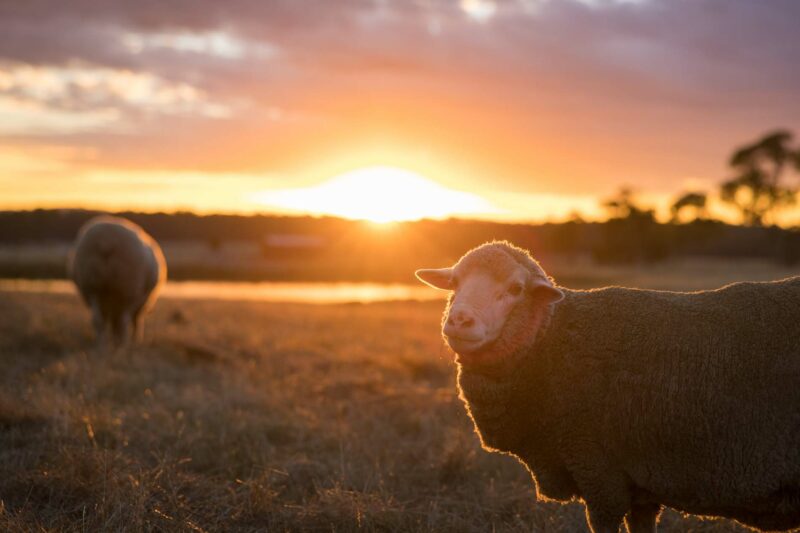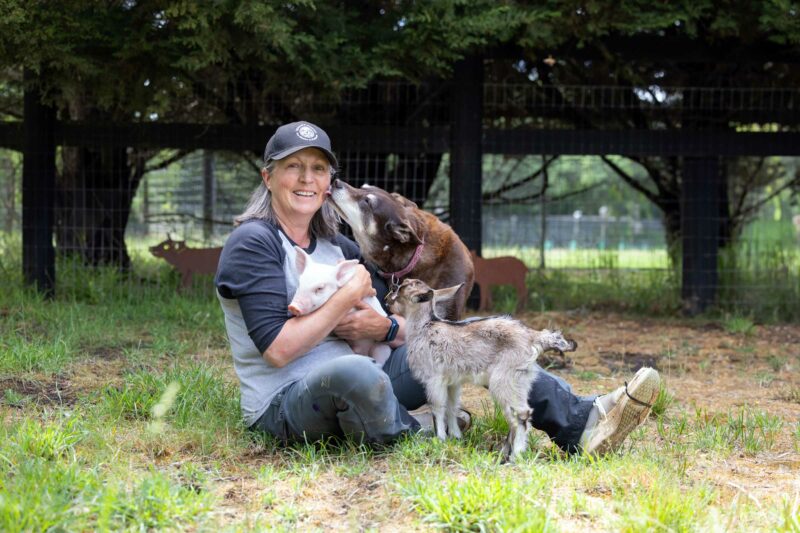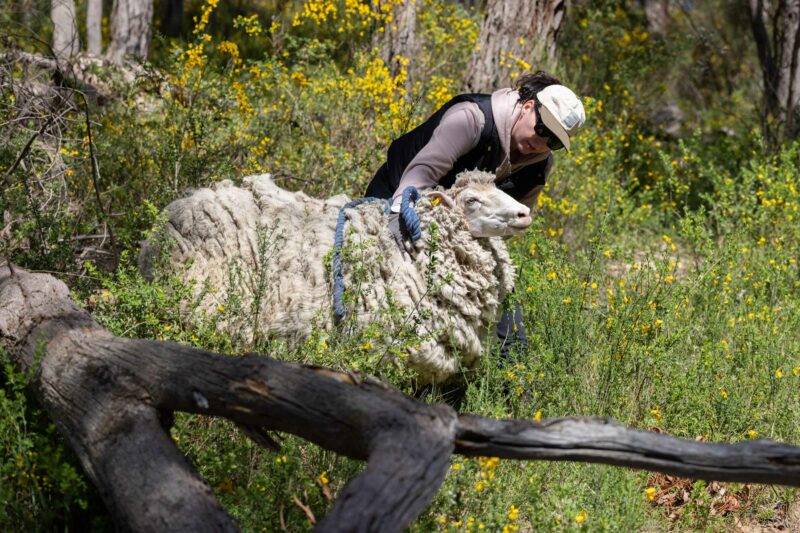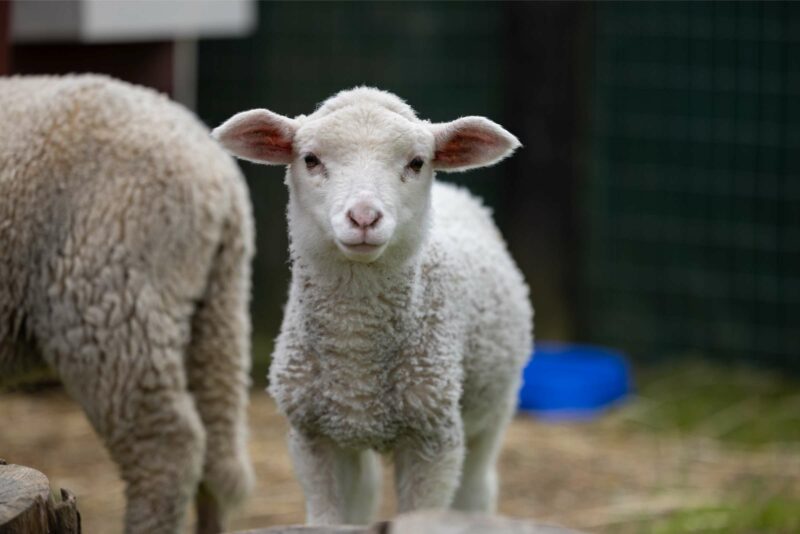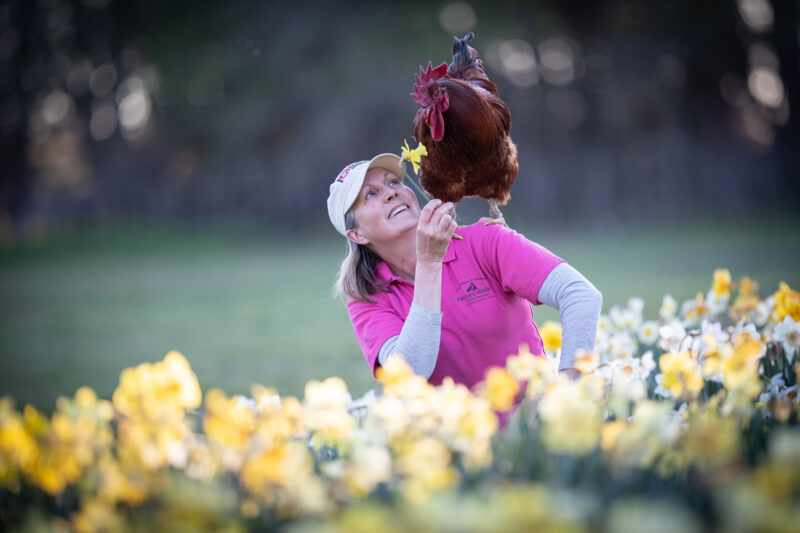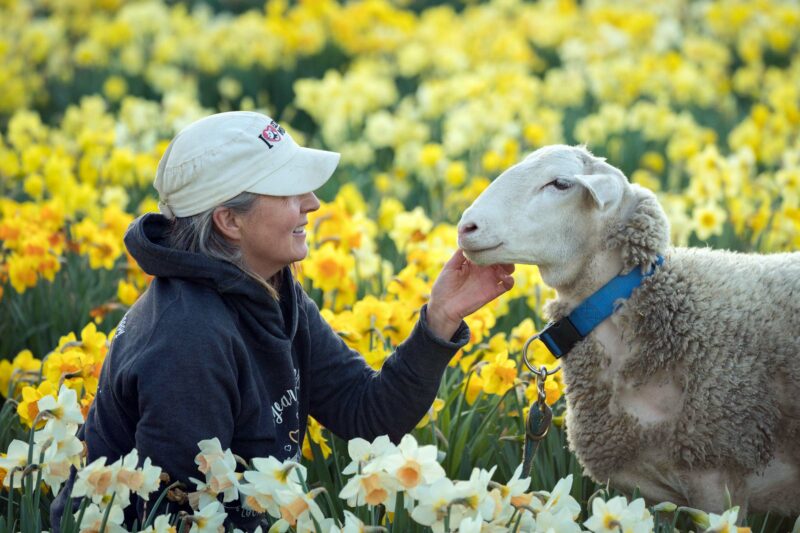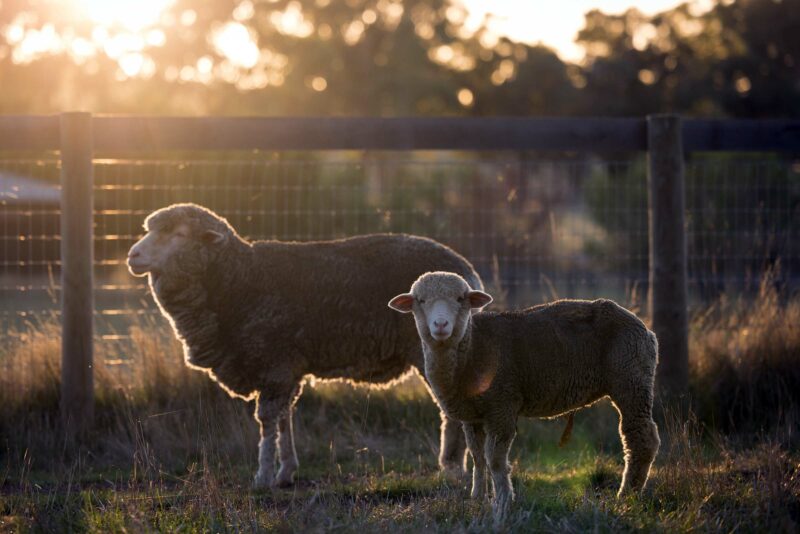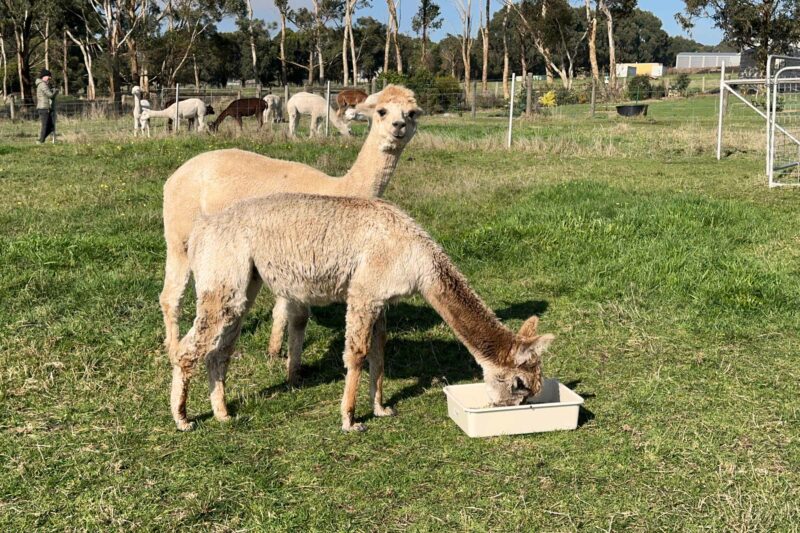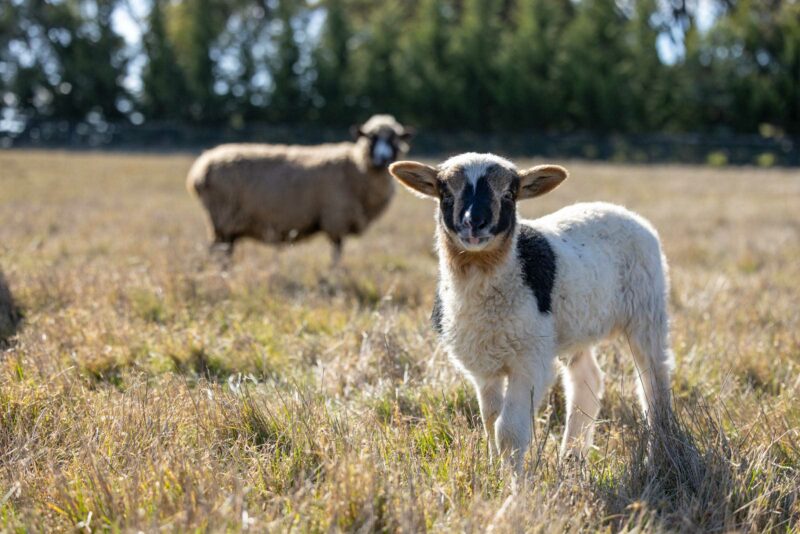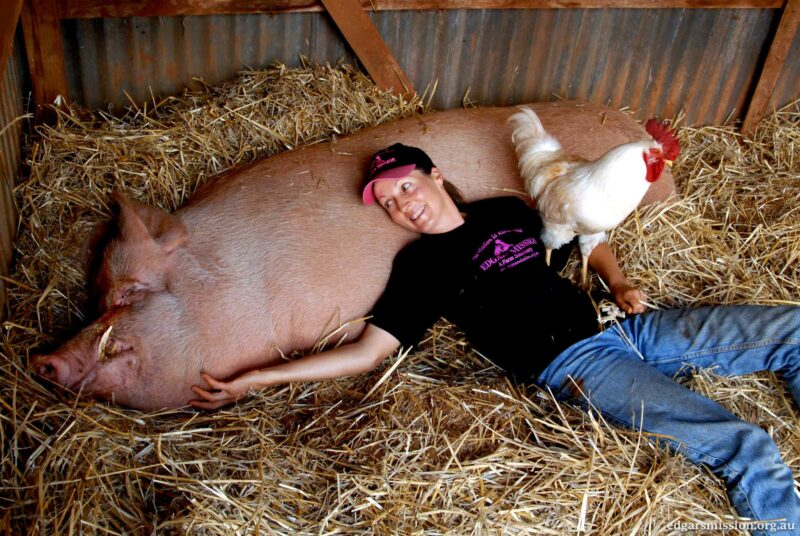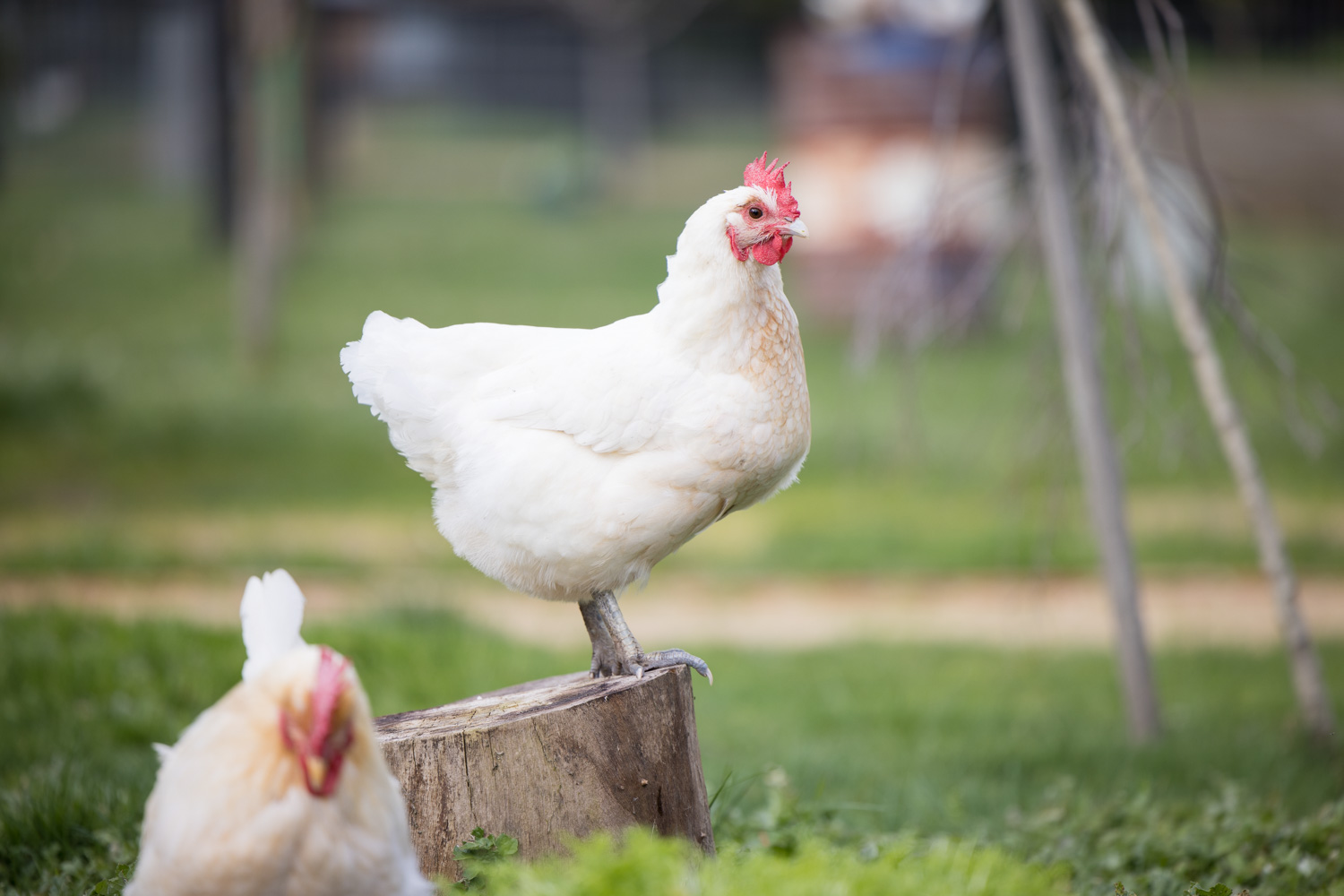
Why did the chicken cross the road?
I’m not really sure; in fact, to be honest, do we really know why anyone does anything? I guess the best way of finding out would be to get inside another’s head. So, to crack the answer to this age-old question, I want to take you on a bit of a road trip, a journey to find out not only what it means to be a chicken but also to find out who they really are.
Chickens began flapping out of the groves and scrublands of India and Southeast Asia around 8000–10,000 years ago and into domestication. A primary progenitor of today’s chickens, Gallus gallus domesticus, is the red jungle fowl. However, the red jungle fowl does not have the yellow leg and skin colouring we see on many of these modern birds which suggests an opportunistic and romantic interlude or two by the grey jungle fowl who does.
So where are these 19 billion feathered wonders? Sadly, for these highly intelligent and inquisitive birds, most cannot see the sunshine, smell fresh air or even take more than a few stifled steps, let alone contemplate crossing the road. But contemplate they do.
Jane Goodall’s observations, in the Gombe Stream national park, of chimpanzees using tools, a skill previously thought to be the sole preserve of humans, caused palaeontologist Louis Leakey to remark, “Now we must redefine ‘tool’, redefine ‘man’, or accept chimpanzees as humans”.
Numerous scientific discoveries of chicken intelligence, along with anecdotal evidence from those who share their world with chickens, are causing we humans to redefine just what the once-derogatory expression of “bird brain” really means. With their synapses and neurons firing in much the same manner as ours, chickens have repeatedly been shown to have such cognitive abilities as to stop even Colonel Sanders in his tracks.
Sherlock Holmes is not a name that is synonymous with chickens, but did you know they are united by their powers of deductive reasoning known as transitive intelligence? Stumped by what that means? If so I guess you are neither a super sleuth nor a chicken. Transitive intelligence is the ability to figure out the relationship among objects that have not been compared before. One way chickens displayed this was by watching a familiar high ranking hen interacting with an unfamiliar hen, then using the knowledge gained from that experience and applying it to their own interactions with the unfamiliar hen. Such an application of complex logical reasoning is surely worthy of its own TV series, perhaps Fowls at play!
Chickens have been shown to have numerical skills along with understanding of time perception and memory, as well as demonstrating self-control and even self-awareness. But wait, there’s more: chicken are highly emotional animals, each with a distinctive personality. Despite being devoid of facial expressions that would give we humans clues as to what they are experiencing, the emotional world of chickens is charged with happy, sad, joyful, cheeky, reflective moments and so much more to rival our own.
Now, we’ve all heard the expression “chicken-hearted” used to describe someone who is a coward. But chickens, pound for pound, are incredibly courageous. Mother hens will fiercely protect their young and roosters are darn right chivalrous when it comes to taking on predators who seek to harm their harem.
No journey into the world of chickens could be complete without stopping off to meet one. Her name is Little Miss Sunshine, a rather ironic name for a rescued laying hen who spent much of her life in a tiny wire cage along with four other hens.
Unless of course the one thing that could save you shone through – the goodness of the human heart. And that’s just what happen for Little Miss Sunshine.
One day while the egg farmer was walking through the shed that housed thousands upon thousands of hens, he stopped and looked into the eyes of one and instead of seeing an egg laying production unit before him, he saw a living, breathing being staring back at him, one who deserved none of what life had afforded her.
Right then and there he decided to exit the industry but not before he secured homes for all of the hens. Little Miss Sunshine being one of them. And this is where myself and several other kind crusaders stepped in and one by one we lifted each and every one of those hens out of those wire prisons and into freedom.
I had the privilege of seeing Little Miss Sunshine scratching about in the soil for the first time in her life, enjoying the sun’s rays on her back and sneaking off to lay her eggs in private. Now that was a funny one, you should have seen the incredible lengths she went to do to do that.
Sadly, while I was able to save her and so many hens that day, I could not spare them the ravages imposed upon their kind by the selective breeding that sees laying hens pump out over three hundred eggs a year, way beyond the handful her wild cousins ever would. The resulting reproductive issues, brittle bones, respiratory problems along with cancers and tumours that plagues egg laying hens means they will never live the long and happy life nature intended.
She showed all those she met, what fun loving and endearing animals’ chickens really are.
Psychologist Nicholas Humphrey, from the London School of Economics, suggested in 1976 that one of the drivers behind the evolution of brainpower were the demands of social life. This requires cognitive skills and social calculations, where individuals needed to gauge the consequences of their behaviour in the group; such skills lead to the development of higher intellectual capacities. Both humans and chickens do this; we humans are not alone.
One of the great determinants of a society’s ethical progress is its ability to embrace those once considered different. The colour of one’s skin, the religion one followed, and even one’s gender were all yardsticks of moral consideration. Now, I am not for one minute suggesting chickens are humans in feathered suits, but I am suggesting that when it comes to our treatment of them, we need to do more than scratch the surface.
So why did the chicken cross the road? I’m still not entirely sure, but nevertheless I dream of a day when these incredible yet much-maligned and underrated animals can cross the road without their motives being questioned, arriving safely on the other side to dine on a feast of human kindness. And isn’t it time for that to happen?
